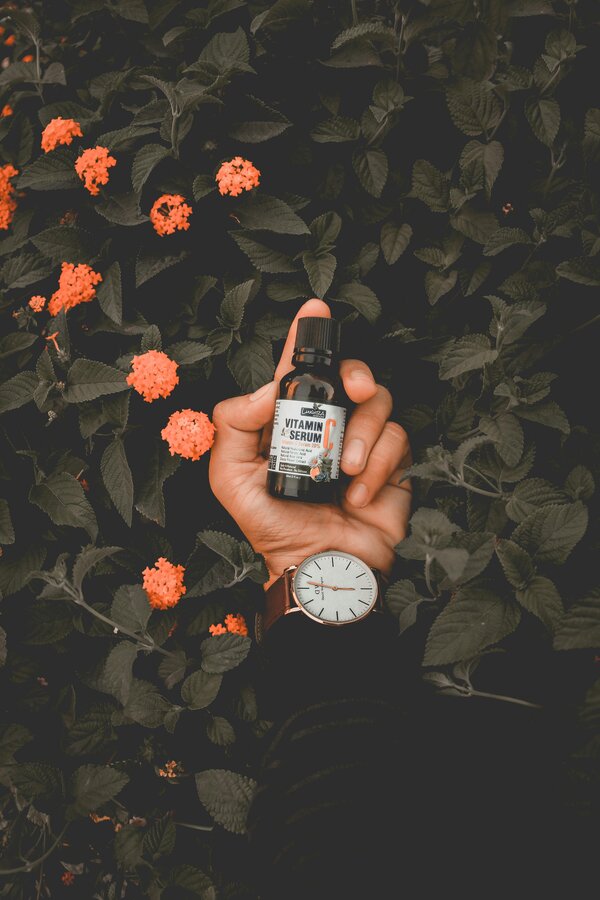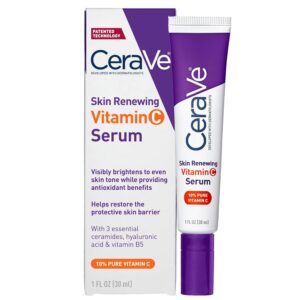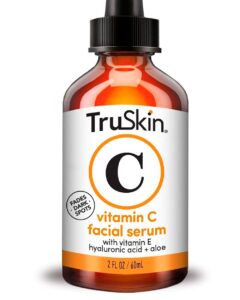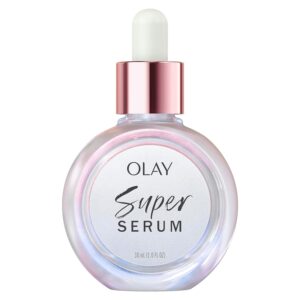Should Vitamin C Serum Be Used Every Day?
When it comes to skincare, one question that frequently pops up is, "Should vitamin C serum be used every day?" As skincare routines evolve and the demand for glowing, healthy skin rises, vitamin C serum has emerged as a popular choice for people looking to boost their complexion. This powerful antioxidant is known for its brightening properties, reducing the signs of aging, improving texture, and offering overall skin protection. But is daily use of this potent ingredient really necessary or even safe?
In this comprehensive guide, we’ll dive deep into the benefits of vitamin C serum, how to incorporate it into your routine, the considerations for daily use, and the potential risks. By the end of this article, you’ll have a clear understanding of whether you should make vitamin C serum a part of your daily skincare ritual.
What Exactly is Vitamin C Serum?
Vitamin C serum is a topical skincare product formulated with a concentrated form of vitamin C, typically ascorbic acid or one of its more stable derivatives like sodium ascorbyl phosphate. Unlike other skincare products that may simply sit on the surface, serums are designed to penetrate the deeper layers of the skin, delivering potent, active ingredients where they are most needed.
Here’s why so many skincare enthusiasts rave about vitamin C serum:
- Brightens skin tone: Vitamin C is renowned for its ability to reduce the appearance of hyperpigmentation and dark spots, leaving your skin looking fresh and radiant.
- Boosts collagen production: As we age, our collagen levels deplete, leading to fine lines and wrinkles. Vitamin C stimulates collagen synthesis, promoting skin elasticity and firmness.
- Neutralizes free radicals: As an antioxidant, vitamin C neutralizes free radicals caused by environmental stressors such as pollution, UV rays, and cigarette smoke. These free radicals accelerate the aging process and cause skin damage.
- Reduces inflammation: Vitamin C can calm irritated skin, reduce redness, and support the skin's natural healing process, making it ideal for those with acne-prone or sensitive skin.
While the benefits of vitamin C serum are clear, understanding how to maximize these advantages without overwhelming your skin is essential.
The Science Behind Vitamin C: Why Your Skin Loves It
Before we dive into whether you should use vitamin C every day, it’s important to understand what makes vitamin C such a skincare powerhouse. At its core, vitamin C is a powerful antioxidant that not only protects the skin but also plays a crucial role in several physiological processes related to skin health.
- Collagen synthesis: Vitamin C is vital in the formation of hydroxyproline and hydroxylysine, which are needed to bind the molecules that produce collagen. This means that adequate levels of vitamin C help to keep your skin firm and youthful.
- Brightening effect: Vitamin C inhibits melanin production, the pigment responsible for dark spots and hyperpigmentation. This results in a more even skin tone over time.
- Skin barrier protection: Vitamin C strengthens the skin’s barrier function, making it more resilient to environmental stressors and reducing the impact of external aggressors.
But here's the real kicker—your body doesn't naturally produce vitamin C, which means the only way to get its benefits is through topical application or dietary intake. And when it comes to your skin, topical application is far more effective than relying on diet alone.
CeraVe Vitamin C Serum with Hyaluronic Acid | Skin Brightening Serum for Face
Benefits of Using Vitamin C Serum Daily
So, should you use vitamin C serum every day? The short answer for most people is yes. When used correctly, vitamin C serum can offer a wealth of benefits that improve your skin’s health and appearance over time. Let’s take a closer look at the potential advantages of daily use.
1. Consistent Brightening and Radiance
One of the most noticeable benefits of using vitamin C serum daily is its ability to brighten your complexion. With regular use, vitamin C can help reduce dark spots and hyperpigmentation, leaving your skin looking more even-toned and radiant. If you struggle with dull skin or uneven pigmentation, daily application will help maintain a consistent glow, especially when combined with other brightening agents like niacinamide or alpha arbutin.
2. Long-Term Anti-Aging Effects
As an antioxidant, vitamin C not only helps to neutralize free radicals, which accelerate aging, but it also stimulates collagen production. Daily use of vitamin C can help reduce the appearance of fine lines and wrinkles, making your skin appear firmer and more youthful. This is particularly important as collagen production decreases with age, leading to sagging skin and loss of elasticity. By using vitamin C serum daily, you can slow down the aging process and keep your skin looking younger for longer.
3. Protection from Environmental Damage
Our skin is constantly exposed to harmful environmental elements such as UV rays, pollution, and oxidative stress. These factors contribute to premature aging, uneven skin tone, and inflammation. Vitamin C acts as a shield, protecting your skin from these external aggressors by neutralizing the damage caused by free radicals. Daily application ensures your skin has an extra layer of defense every day, making it more resilient in the long run.
4. Improved Skin Texture
Regular use of vitamin C serum can lead to smoother, more refined skin. By promoting cell turnover and collagen synthesis, vitamin C helps to improve skin texture, reducing roughness and making your skin feel soft and supple. This is especially beneficial if you deal with uneven patches or rough spots.
5. Boosts the Effectiveness of Sunscreen
While vitamin C isn’t a replacement for sunscreen, it can enhance your sun protection. When used in combination with sunscreen, vitamin C boosts its effectiveness, providing your skin with even more protection against harmful UV rays. Applying vitamin C serum in the morning, followed by a broad-spectrum SPF, creates a powerful defense against sun-induced damage and photoaging.
TruSkin Vitamin C Serum – Anti Aging Facial Serum
Is It Safe to Use Vitamin C Serum Every Day?
For most people, daily use of vitamin C serum is safe and beneficial, but as with any skincare product, there are some important considerations to keep in mind. Your skin type, sensitivity level, and the concentration of the vitamin C serum all play a role in how your skin reacts to regular use.
1. Skin Type Considerations
- Sensitive Skin: If you have sensitive skin, you may experience some irritation when first using vitamin C serum, especially if the concentration is high. Start by applying the serum every other day or using a lower concentration (5-10%) to allow your skin to gradually adjust. Over time, your skin should build tolerance, and you can increase the frequency of application.
- Oily and Acne-Prone Skin: Vitamin C can be a great addition to your routine if you have oily or acne-prone skin. It helps reduce inflammation, which is often a culprit behind acne, and improves skin texture. Daily use may help clear up existing blemishes while preventing new breakouts.
- Dry Skin: While vitamin C is beneficial for dry skin, it’s important to follow up with a good moisturizer, as it can sometimes cause dryness or mild irritation. Vitamin C may also increase your skin's sensitivity to the sun, so never skip the sunscreen.
2. Concentration Levels
When choosing a vitamin C serum for daily use, the concentration of vitamin C matters. Most over-the-counter products contain vitamin C in concentrations ranging from 5% to 20%. For those with sensitive skin, a lower concentration (around 10%) is a good starting point. If your skin tolerates vitamin C well, you can work your way up to serums with higher concentrations (15-20%) for more powerful results.
- Pro tip: More isn't always better. Higher concentrations can sometimes cause irritation, especially for beginners. Listen to your skin and adjust accordingly.
3. Patch Testing for Safety
Before applying vitamin C serum all over your face, it’s a good idea to do a patch test. This will help you identify any adverse reactions or sensitivities to the product. To patch test, apply a small amount of the serum to a discreet area of skin, such as behind your ear or on your forearm. Wait 24 hours to see if any irritation occurs. If you experience redness, itching, or discomfort, you may want to opt for a lower concentration or consult with a dermatologist before proceeding.
How to Incorporate Vitamin C Serum into Your Skincare Routine
Using vitamin C serum daily requires more than just slathering it on. To maximize its effectiveness, it’s important to incorporate it into your routine in the correct order and with complementary products.
Step-by-Step Guide to Applying Vitamin C Serum
Cleansing: Start with a gentle cleanser to remove dirt, oil, and makeup from your skin. Cleansing ensures your skin is prepped and ready to absorb the serum.
Toning (Optional): Use a toner if it's part of your routine. This step helps balance your skin's pH and can improve absorption of the serum.
Applying Vitamin C Serum: Take a few drops of vitamin C serum (a little goes a long way) and gently press it into your skin using your fingertips. Make sure to apply it evenly across your face and neck.
Moisturizing: After applying the serum, follow up with a hydrating moisturizer. This locks in the serum's benefits and ensures your skin stays hydrated throughout the day.
Sun Protection: Vitamin C can make your skin more sensitive to the sun, so it’s crucial to apply a broad-spectrum sunscreen with at least SPF 30 every morning. This not only protects your skin from harmful UV rays but also enhances the effects of the serum.
When to Apply Vitamin C Serum: Morning or Night?
Most experts recommend using vitamin C serum in the morning to protect your skin from environmental damage throughout the day. However, it can also be used at night, especially if your routine includes retinol or other active ingredients that should not be used together with vitamin C during the day.
What Not to Mix with Vitamin C Serum
To avoid irritating your skin or neutralizing the effects of vitamin C, there are certain ingredients that should not be used at the same time:
- Retinoids: Using retinol and vitamin C together can increase irritation, especially for sensitive skin. Consider using retinol at night and vitamin C in the morning.
- AHAs and BHAs: Mixing vitamin C with exfoliating acids like glycolic acid (AHA) or salicylic acid (BHA) can cause irritation and diminish the benefits of both ingredients.
Choosing the Right Vitamin C Serum
Not all vitamin C serums are created equal. The effectiveness of the serum largely depends on the form of vitamin C, its concentration, and the stability of the formula. Here’s what to look for when choosing the best vitamin C serum for your skin:
1. Concentration
As mentioned earlier, the concentration of vitamin C in your serum can range from 5% to 20%. Beginners and those with sensitive skin should start with a lower concentration (around 10%) to avoid irritation, while experienced users can opt for stronger formulations (15-20%) for maximum results.
2. Form of Vitamin C
The most effective and researched form of vitamin C is L-ascorbic acid, but it's also the least stable. If your skin is sensitive or if you’re looking for something with a longer shelf life, consider more stable derivatives like sodium ascorbyl phosphate or magnesium ascorbyl phosphate.
3. Packaging Matters
Vitamin C is highly susceptible to oxidation, which means it can degrade and lose its potency when exposed to light, air, and heat. For this reason, always choose a serum that comes in opaque, airtight packaging. Look for dark glass bottles with pumps or droppers to protect the serum from oxidation.
4. pH Levels
For optimal absorption, vitamin C serums should have a pH level of 3.5 or lower. Higher pH levels may reduce the effectiveness of the serum.
5. Added Ingredients
Some vitamin C serums include additional ingredients like vitamin E and ferulic acid, both of which can enhance the serum's antioxidant properties and stability. These combinations can further protect your skin from free radical damage and improve the efficacy of vitamin C.
The Potential Downsides of Using Vitamin C Serum
While vitamin C serum is generally safe for most people, it’s important to be aware of potential side effects. These include:
- Irritation: Some people may experience redness, itching, or stinging after applying vitamin C, especially if the concentration is too high for their skin type.
- Purging: When you first start using vitamin C serum, your skin may go through a "purging" phase, where breakouts become more frequent. This is usually temporary as your skin adjusts to the new product.
- Oxidation: Vitamin C is highly unstable and can oxidize quickly, turning a brownish color. If your serum has oxidized, it’s less effective and should be replaced.
If you notice persistent irritation or worsening of skin conditions, discontinue use and consult with a dermatologist.
Conclusion: Is Vitamin C Serum for You?
In summary, using vitamin C serum every day can significantly enhance your skincare routine and offer numerous benefits for your skin. From brightening your complexion to fighting the signs of aging and protecting your skin from environmental damage, this potent antioxidant is a versatile addition to any skincare regimen.
That being said, it's essential to consider your skin type and sensitivity before committing to daily use. Start with a lower concentration, gradually increase frequency, and always follow up with sunscreen to protect your skin. With the right product and proper application, vitamin C serum can become a powerful ally in your journey toward radiant, youthful skin.
So, if you’re ready to incorporate vitamin C serum into your daily routine, take it slow, listen to your skin, and prepare for that natural glow!




